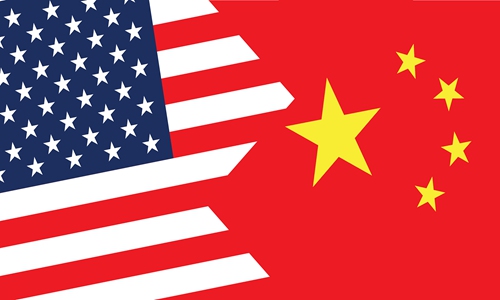HOME >> OPINION
US should not test China’s patience on HK
By Zhang Chenrong Source:Global Times Published: 2019/12/4 23:13:40

Photo: VCG
China has suspended reviewing applications by US warships and aircraft to make port calls in Hong Kong and will impose sanctions on five NGOs, including the National Endowment for Democracy and Human Rights Watch, which are involved in the Hong Kong unrest. These countermeasures were announced by China's Foreign Ministry on Monday as a response to US so-called Hong Kong Human Rights and Democracy Act, which was signed into law by US President Donald Trump on November 27.The US legislation stipulates that it will evaluate Hong Kong's "autonomous decision-making," based on which Washington will decide whether to continue the city's special customs status. In addition, the bill said the US should impose sanctions on officials from the Chinese mainland and Hong Kong involved in violating so-called human rights.
China's retaliatory measures showed the Chinese government's resolve to safeguard its sovereignty, security, development, to follow the "one country, two systems" principle, and to resist external interference.
To stop violence and restore order is what Hong Kong needs most now. As Article 23 of the Basic Law, which states that "the Hong Kong Special Administrative Region shall enact laws on its own to prohibit any act of treason, secession, sedition, subversion against the Central People's Government… to prohibit foreign political organizations or bodies from conducting political activities in the Region," is not yet implemented in the city, such countermeasures are stern warnings to disruptive forces.
The US so-called Hong Kong bill is overt interference in China's domestic affairs. But we can see the Chinese side has been restrained considering the bigger picture of China-US ties. The countermeasures are meant to warn the US to stop interfering before it is too late.
It is not the first time China has suspended reviewing applications for US warships and aircraft to make port calls in Hong Kong, the US side should be aware of the signal such suspensions have sent. On the other hand, although Beijing's sanctions against the US NGOs, which are as a matter of fact supported by Washington and even US intelligence agencies, will give US far-right forces an excuse to step up their anti-China rant, it has saved the face of the Trump administration, since after all, they are NGOs.
Trump was reluctant to sign on the Hong Kong bill. He was aware that his signature would scupper the chances of a phase one trade deal with China, but in the face of "political correctness" in terms of Hong Kong issue, which is formed by both chambers of the Congress, and mounting pressure of presidential election, his signing could be argued as a rational choice from his own perspective.
However, as if offering a sweet pill, he immediately issued a statement after signing on the bill to send a friendly signal to China, implying that the provisions of the bill won't be enforced immediately. He hedged full support for the legislation, saying that "certain provisions of the act would interfere with the exercise of the president's constitutional authority to state the foreign policy of the US."
Trump obviously wished not to push China too hard by showing that his attitude toward Hong Kong is not totally consistent with that of the Congress. But if the US ignores China's warning, continues interfering, and even slaps sanctions on China citing the legislation, the Chinese government will certainly step up its countermeasures. China-US relations are then bound to be affected.
Whether it will come to such a situation is up to what steps the Trump administration takes next.
Yet in any case, Hong Kong affair's bottom line is sovereignty, which must not be crossed and should be protected at all costs.
The author is research associate of Taihe Institute. opinion@globaltimes.com.cn
Posted in: VIEWPOINT